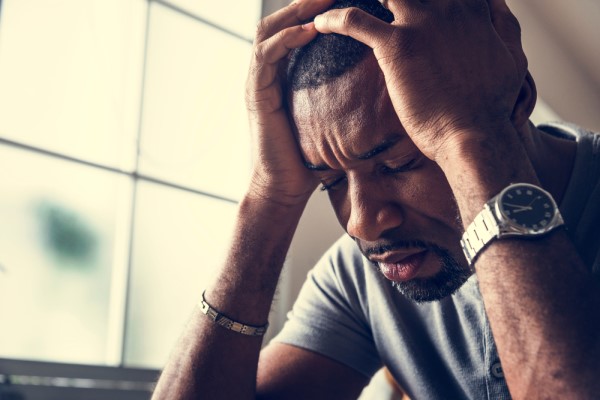How a Psychiatrist Can Help You Manage Anxiety Disorder Symptoms

Everyone experiences occasional anxiety, but an anxiety disorder involves persistent, excessive worry and physical symptoms that can disrupt daily routines, relationships, and overall well-being. If left untreated, these symptoms can intensify, impacting mental and physical health. Seeking help from a psychiatrist can be a significant first step toward effectively managing anxiety disorder symptoms and getting your life back.
Understanding Anxiety Disorders and the Role of a Psychiatrist
Anxiety disorders encompass a range of conditions, including generalized anxiety disorder (GAD), social anxiety, panic disorder, and specific phobias. Each type presents unique symptoms but shares common elements: overwhelming worry, physical tension, and impaired functioning. Psychiatrists specialize in understanding and treating these disorders by using medication. Often, a psychiatrist will suggest therapy and lifestyle recommendations in addition to medication. They are medical doctors who bring clinical expertise to identify the specific type of anxiety disorder, as well as any underlying factors, such as genetic predisposition or life stressors, that may contribute to the condition.
Medication Management for Anxiety Disorders
Medication is often a requirement for managing anxiety disorders. Because they are medical doctors, psychiatrists are uniquely qualified to prescribe and monitor medications, such as antidepressants, benzodiazepines, or beta-blockers, which help to treat anxiety disorders. Medications can help regulate brain chemistry, making it easier for individuals to manage their symptoms and engage in daily life. A psychiatrist will work closely with the patient to determine the most appropriate medication, adjusting the dosage or type to achieve optimal results with minimal side effects.
While medication is not always necessary, it can be a crucial tool for patients who struggle with severe symptoms. By alleviating physical and emotional discomfort, medication allows patients to focus more effectively on therapy and lifestyle changes that support long-term recovery.
Additional treatment recommendations
Some of the most successful treatment plans for anxity disorder involve a combination of medication, therapy, and lifestyle adjustments. Though their key role is diagnosis, prescribing, and monitoring medication, a psychiatrist may recommend the following.
Behavioral or talk therapy
A psychiatrist may refer patients to a psychologist for therapy to complicate the medication. One effective therapy for anxiety disorders is cognitive-behavioral therapy (CBT), which helps patients understand and change the patterns of thought that contribute to anxiety. CBT teaches individuals to identify and reframe irrational fears or unhelpful thought patterns, reducing their hold on the mind. Additionally, a psychiatrist may recommend exercises in exposure therapy, a method particularly useful for phobias or social anxiety, where patients learn to face their fears in a safe, controlled environment. Over time, this exposure reduces the intensity of anxiety-provoking situations and empowers the individual to respond with greater resilience.
Lifestyle Recommendations
Certain lifestyle changes, such as exercise, sleep hygiene, and dietary adjustments, support mental health and enhance the effectiveness of treatment. For example, regular physical activity can naturally reduce anxiety by releasing endorphins, while quality sleep improves overall resilience to stress. Psychiatrists can help patients develop coping strategies, like relaxation techniques and healthy routines, that build emotional resilience and provide practical tools to manage anxiety daily.
Hope for those struggling with anxiety
Are you afraid that your level of anxiety is not normal? An untreated anxiety disorder could harm your emotions mental and physical health. Let us help. Call today to learn more about managing anxity disorder symptoms.
Request an appointment here: https://www.christiesfamilyhealth.com or call Christies Family Health LLC at (832) 915-1818 for an appointment in our Houston office.
Check out what others are saying about our services on Yelp: Anxiety Disorder in Houston, TX.
Related Posts
Every year, more than 17 million individuals in the United States deal with depression. Depression, characterized by disruptions in a person's emotions, behavior, and thoughts, deprives a person of their ability to experience pleasure in life. Patients often experience a state of near-total numbness or persistent grief. The psychiatrist will typically recommend the proper treatment…
Patients struggling with depression often suffer from sleep difficulties, such as insomnia. Clinical Depression is associated with sleep disturbances (both problems getting asleep and maintaining it) or excessive sleep. As a result, it might be difficult to tell if depression is causing sleeplessness or whether insomnia is causing depression. A visit to the psychiatrist is…
Although often overlooked, mental health is just as important as physical health. Whether you have a mental disorder or are going through a difficult time due to external factors, a psychiatrist can provide professional help. You can also follow several self-care tips outside of treatment to help make your mental health journey easier.Self-care is crucial…
Depression, if left untreated, may have far-reaching consequences. The condition may cause problems at work and home, interfere with sleep, heighten susceptibility to harmful habits like substance abuse, and make it harder to recover from physical ailments. However, most persons with depression may recover with appropriate treatment from a psychiatrist. Patients with depression usually respond…







